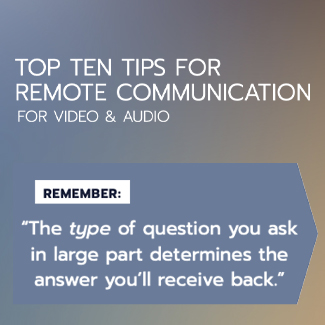If you have a Facebook account (most of us do), if you’re concerned about the election (most of us are), and if you’ve allowed the pandemic to skyrocket your time spent on screens (most of us have)…this column is for you.
First, some bad news: you’re probably using Facebook to try to persuade someone, and it’s a lousy tool for the job.
Think back to school…how did you open your mind to a new activity? I’ll tell you how it didn’t happen: some friend of a friend passes you a harsh handwritten note that says “you and all your scum friends should join band practice like me and all my clan. Band Clan rules! (Now read the long justification to my snarky note at this URL).”
It happened because someone introduced you to an activity they liked, and you let down your guard a bit and discovered it was fun. In essence, your friend talked you into coming to band practice and you realized you liked music.
Unfortunately for our society, we have become two massive cliques, and we’re all attending school at Facebook High dressed in our Red or Blue uniforms. Facebook High is a large school; it has 2.7 B students. Classes aren’t in-person and there are no faculty or staff. We all have the power to deliver that bully note anonymously, across time-zones.
But let’s face it: even though we know it’s not persuasive, we’re all likely to fall into the temptation to answer back to the provoking thread or post the thing we’re outraged by. Facebook activates three emotions which are brutally hard to walk away from: ego (I’m better than you), envy (you’re better than me), and outrage (I can’t believe that you’re worse than me and you posted that political trash!)
So, if you’re going to engage (and you probably are), here’s how to engage and protect your sanity and others’.
- Use polite language, closer to long-form correspondence than texts: ‘sorry for the delay in responding,’ ‘get to this if/when you can,’ ‘thanks for reading,’ ‘interested to know your thoughts.’ This is not false politesse. The reason to do this is simple: you’ll feel better.
- Offer accountability and apologies about your communication, even if you don’t apologize about the substance of your argument.
- When a person references numbers or data, ask for the source. Do so in a kind and inquisitive way. Someone has to read the source material, and since they cited the data, that unfortunate person is you! Otherwise you’re just shouting at each other and deepening the icky experience of writing vitriol at strangers with no verifiable reason…
- …but don’t click on the links they provide! That just gives questionable posts more traction. Number of shares doesn’t necessarily correlate to legitimacy. Instead, open a new browser, investigate the bona fides of the news source, and then look for the article in a search engine.
- If someone insults you, don’t retaliate – empathize. Write something kind and forgiving. Get them to feel silly about their behavior rather than enraged at yours.
- Don’t compare. No one cares. It’s not like Kristallnacht or McCarthyism or Roswell or Apartheid or the Holocaust. Even if it is, it isn’t. Stop comparing. When others do, write this: “Jumping to another comparison would be better over a cup of coffee. Without a chance to chat in person, I’ll keep my response limited to the initial post. Cheers!”
- Make your tone cheerful, respectful and colloquial. Using casual language like chat, take a look, or check it out reminds the person that you are a human.
- Cite people’s names! Doing so will make them feel respected but also make them think twice about posting alarmist drivel.
- Don’t use any of these words: ad hominem attacks, whataboutism, platitudes, false equivalencies. As soon as you do, you’ve launched into a meta fight. Anyone who has ever wanted to explode when the overly broad, “you always do that!” comes out in a fight knows how annoying meta-arguments about arguments are. There’s a good chance: you don’t understand the term; they don’t understand the term; you both understand the term, but one of you believes it doesn’t apply. The times when someone has said to themselves, “oh I’m glad they used that term; I didn’t know what it meant, but I looked it up in the dictionary and now I do — thanks for educating me!” can be counted on exactly zero fingers.
- Last, if you feel passionately enough about it to rant on FB, get involved in the actual cause in real life.
We all are in one giant school now, but the faculty aren’t attentive. They have a conflict of interest, because they are actually incentivized to get their kids into food fights. It’s up to us to be respectful citizens of that school.






